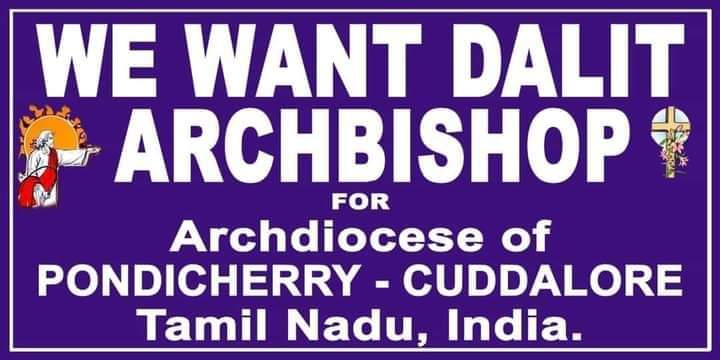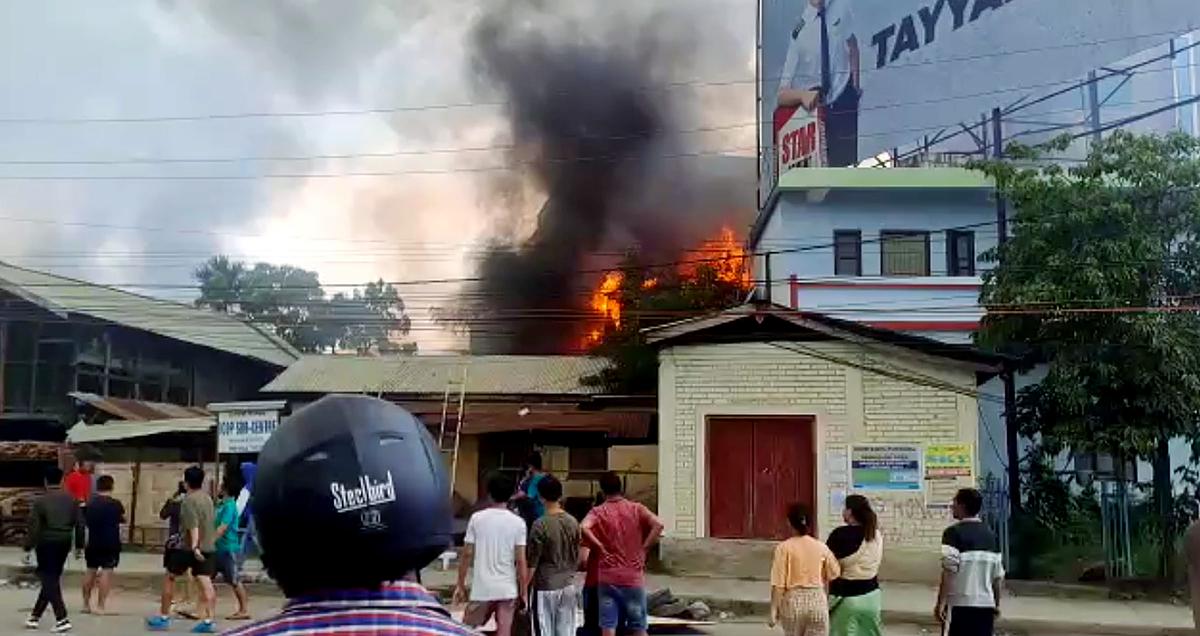By DCD Reporter
My humble greetings to all. Episcopal appointments of the bishops are still going on in Tamil Nadu. When the diocese of Salem in Tamil Nadu was bifurcated from Dharmapuri, Bishop Irudayaraj SDB was appointed as its first bishop from the Dalit community.
Later, when we demanded to have more Dalit bishops, Bishop Gabriel, the then-rector of the Veilankanni shrine in the Tanjore diocese, was appointed as the bishop of Trichy. The Dalit Christians, under the leadership of Father Antony Raj, the then president of the Dalit Christian Liberation Movement, protested the late Cardinal Lourdhuswamy, and 1000 people were arrested.
Later in 1994, the Dalit Christian Liberation Movement led the agitations to appoint bishops among the Dalit Christians. Bishop A. Neethinathan and Archbishop Emeritus A.M. Chinnappa were both named as the bishops of Vellore and the diocese of Chingleput in 2002.
We have continued our demand to have more Dalit bishops. When Archbishop Chinnappa was the president and continued the Tamil Nadu Bishops’ Council, Bishop Soundarraju was appointed as the Bishop of Vellore in 2016.
From the period of Archbishop Antony Pappusamy of Madurai to Archbishop George Antonysamy of Madras-Mylapore as president of the Tamil Nadu Bishops’ Council (TNBC), there have been no Dalit bishops appointed so far. They do not give priority to Dalit Christians and promote people of their castes.
The population of Dalit Christians in the diocese of Dindigul was above 60% when it was bifurcated from Madurai. They ignored the Dalit Christians and appointed Bishop P. Thomas Paulsamy, who belongs to the same community as the president of TNBC.
When Archbishop George Antonysamy was the Apostolic Nuncio in South Africa, he wanted to appoint a priest from his community. The Dalit Christians vehemently opposed it and brought the issue before the Holy Father. Archbishop Antony
Pappusamy, who was the president of TNBC at the time, recommended him and brought him to the Archdiocese of Madras-Mylapore.
In his period, the appointments of bishops were sold for money in Tamil Nadu. As many as 22 villages in the districts of Coimbatore and Sultanpet were erected.
Bishop Peter Abir is from the same community as the Madras Archbishop. Crores of money were exchanged at this time. No one can deny or forget this fact.
The office bearers of DCLM met Archbishop Antony Pappusamy to appoint Dalit bishops in Tamil Nadu, and he promised that Dalit Christian bishops would be appointed for the Archdiocese of Pondicherry—Cuddalore and Vellore. It has not taken place so far. Instead, the bishop of Meerut was made the archbishop of Pondicherry-Cuddalore.
Now Pope Francis has appointed six new bishops in India, and none are from the Dalit community. Father Albert George, a priest of the Diocese of Kottar, has been appointed to the Diocese of Kuzhithurai. Father Jeevanantham, a priest of the diocese of Kumbakonam for the same diocese, and Father Valan Arasu of the Kottar diocese have been appointed to the diocese of Jabalpur.
Father Baskar Jesuraj of Tanjore diocese has been appointed to the diocese of Meerut.
The Indian Church has not paid attention to the voice of the Dalits. Archbishop George Antonysamy’s intentions and actions have revealed that he is against the Dalits. Because he is disappointed that his chance of becoming a cardinal has been given to a Dalit in Hyderabad.
The President of TNBC and the Vice President of the Conference of Bishops in India (CCBI) and the Catholic Bishops’ Conference of India (CBCI), Archbishop George Antonysamy, objected to having the Scheduled Caste/Scheduled Tribe Commission.
The church in Tamil Nadu continues to ignore the plights of Dalit Christians. The Dalit Christian Liberation Movement condemns the attitude.
The leaders of DCLM met the Apostolic Nuncio of India and Nepal in 2023, and he stated that Dalit Christians would get the opportunity to fill bishops’ appointments. But it has not happened yet. During our dialogue in Vellore, he used spiritual politics and lied to us. We strongly condemn this, and we wish for an equitable church with no two churches, cemeteries, or hearse carts.
The opinions expressed in the article are personal. They do not necessarily reflect Dalit Christian Digest’s or the editorial board’s stance.










